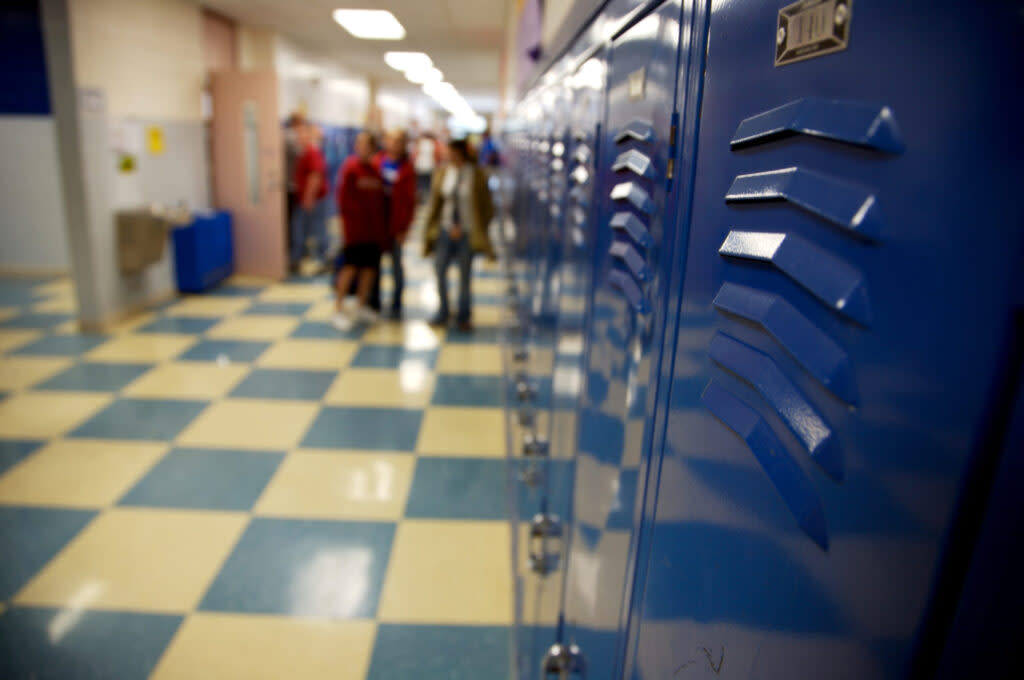The education savings account debate isn’t parents vs. politicians

- Oops!Something went wrong.Please try again later.
- Oops!Something went wrong.Please try again later.
Getty Images
You might have noticed Gov. Jeff Landry on television commercials recently seeking support for an education savings account (ESAs) proposal currently before the Louisiana Legislature. He will also attend two town hall events Thursday to discuss the proposal just ahead of a possible vote in the state Senate.
What you might not know is that these events – and the language of the ESA bill itself – are the work of conservative kingmakers at the national and state level. As much as proponents of the legislation would have you believe this debate is between parents and politicians, the real battle is between deep-pocketed campaign donors and public education — one of many institutions the far right has repeatedly undermined.
Landry has called on citizens to tell their state senators to vote for Senate Bill 313 by Sen. Rick Edmonds, R-Baton Rouge. It would create the LA GATOR program to establish education savings accounts in Louisiana. They would allow families to use public money for a private education, starting first with low-income students at poor performing schools.
Edmonds’ bill shares a lot in common with the ESA legislation template the American Legislative Exchange Council (ALEC) has made available to lawmakers around the country. The organization has been instrumental in crafting legislation for school vouchers, education savings accounts and other efforts to put public money into private schools. Edmonds has sat on ALEC’s education task force.
The American Legislative Exchange Council is a corporate-backed group that identifies as a charity yet operates as a lobbying group, calling into question its tax-exempt nonprofit status. It’s also one of the lead organizations in the Education Freedom Alliance, a coalition of groups that supports school choice paid for with public dollars.
Among the partners in the alliance is Americans for Prosperity, whose Louisiana chapter is hosting the two town halls where Gov. Landry is scheduled to appear Thursday morning. One takes place at Archbishop Rummel High School in Metairie, and the other is at Mary Queen of Peace Catholic School in Mandeville. Both institutions stand to benefit from the enactment of ESAs.
ALEC and Americans for Prosperity are both favorite causes of the Koch family. They have long provided money to a wide variety of conservative causes and candidates. These are the same Kochs who supported former Gov. John Bel Edwards’ criminal justice reform package, then backed his opponent Eddie Rispone in the 2019 governor’s race.
In its social media campaign in support of education savings accounts, the Louisiana chapter of Americans for Prosperity has posted video interviews of citizens being asked who they would prefer in charge of their children’s education — parents or politicians?
Not surprisingly, all of the respondents choose parents, seemingly oblivious of the irony that the powers behind politicians are leading the push for ESAs. Excluded from the question is whether teachers and school administrators should be in charge of education policy. You know, the professionals who are actually trained and best qualified to determine how and what children are taught.
When it comes to education savings accounts, Landry and legislative backers aren’t highlighting the involvement of Americans for Prosperity or other groups behind their cause. They also can’t point to a lengthy track record of ESA success to explain why Louisiana should follow.
What they can and do stress is that a public education system that serves 85% of Louisiana K-12 public school students has faltered for generations. But they leave out the roots of the problem, found in segregation and subsequent poor fiscal policy choices that have depleted the revenue base for property tax-dependent school systems.
Instead, parental choice advocates rely on cultural weapons, such as a “Don’t Say Gay” proposal and transgender bathrooms, that have no tangible impact on students’ ability to learn or teachers’ ability to teach. Measures such as these actually take away parental choice, divide school communities and target marginalized children, frequently pitting families against educators at a time when they need to be allies.
ESAs would drive another wedge into a fractured public education system, rather than offer a unifying solution. Remember, the Trump agenda is about further compromising institutions rather than ensuring their survival.
Louisiana’s systemic educational problems the governor harps upon are ones that politicians, both Republicans and Democrats, created long ago but have repeatedly failed or refused to repair. In all of their arguments for education savings accounts, proponents have offered few suggestions to address the deficiencies in K-12 public schools that necessitate such options.
An amendment to Edmonds’ bill that requires high-stakes testing for ESA students, and thus accountability for the schools that accept them, has split the camps that support the LA GATOR program. Many of the same voices that have cried for public school accountability are bafflingly not willing to hold private education to the same standards.
Fiscal conservatives aren’t keen on the projected cost of education savings accounts. An independent projection says the public could be on the hook annually for more than $500 million once they’re made available to any student regardless of household income.
Given the uncertain return on investment, lawmakers are appropriately skeptical that ESAs they are the long-awaited fix for Louisiana schools.
The post The education savings account debate isn’t parents vs. politicians appeared first on Louisiana Illuminator.

